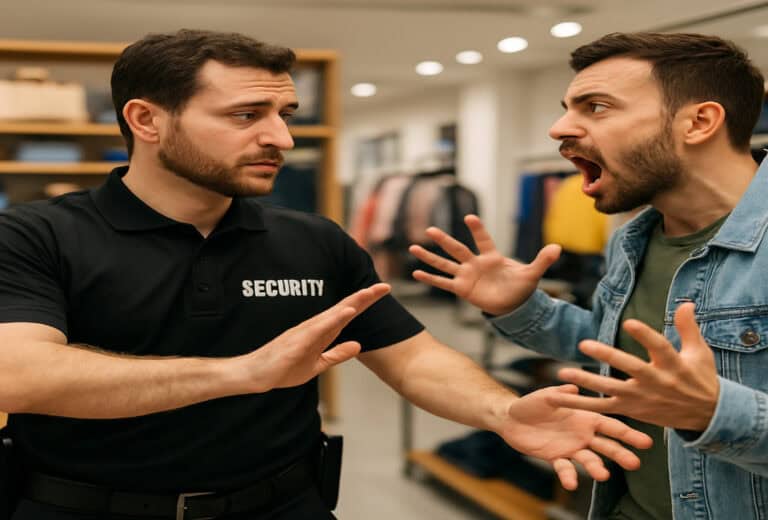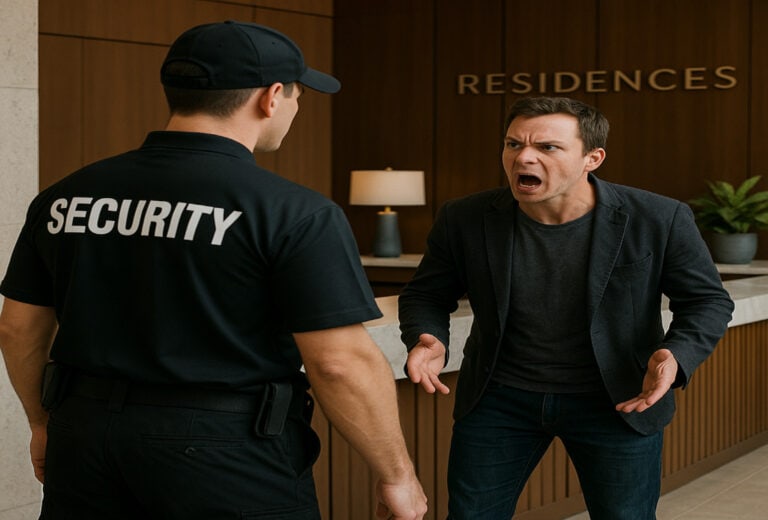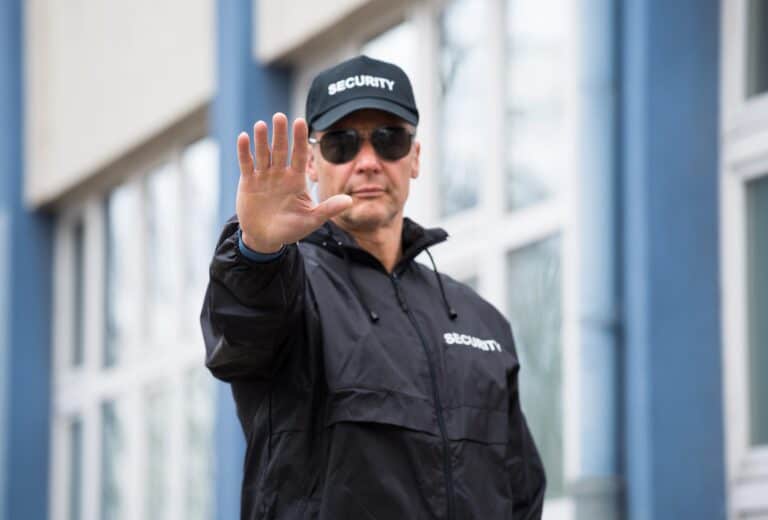The Role of a Security Guard in Manitoba: Responsibilities, Training, and Licensing
Security guards in Manitoba play a vital role in protecting people, property, and information. Whether stationed in shopping centres, government buildings, healthcare facilities, or private residences, they serve as the frontline of safety and crime prevention across the province.
As policing resources become increasingly strained, Manitoba—like many other provinces—has seen a growing reliance on private security services. The number of licensed security personnel has been steadily increasing, making the industry a significant contributor to public safety in both urban and rural areas.
If you’re considering a career in private security, understanding the responsibilities of the job and the process to earn your security guard license is essential. In this guide, we’ll cover the duties of a security guard in Manitoba, the difference between private security and law enforcement, and how to get started with your security guard training.
Legal Regulation of Security Guards in Manitoba
The security industry in Manitoba is regulated under The Private Investigators and Security Guards Act, enforced by the Justice and Public Safety Division of the Government of Manitoba. This legislation governs the conduct, training, and licensing of all individuals working as security guards in the province.
To work legally as a security guard in Manitoba, you must complete a government-approved security guard training program and apply for a security guard license. The province takes licensing seriously to ensure that all guards meet standards of professionalism, legal understanding, and preparedness for the role.
Core Responsibilities of a Security Guard
The fundamental role of a security guard is to observe, deter, record, and report. Here’s how those core duties translate into everyday responsibilities:
- Observe: Patrol premises, monitor surveillance equipment, and remain alert for unusual behavior, unauthorized access, or safety hazards.
- Deter: The visible presence of a uniformed and trained guard helps discourage criminal activity such as theft, vandalism, and trespassing.
- Record: Maintain detailed logs of patrols, shift activities, and any incidents. Accurate documentation is vital for follow-up investigations or legal proceedings.
- Report: Inform employers, clients, or law enforcement when issues arise, and escalate situations when necessary. Strong communication skills are essential.
Security guards must also uphold responsibilities toward:
- Their Employers: Protecting assets, enforcing property rules, and adhering to internal protocols.
- The Public: Especially in high-traffic or public-facing environments, guards assist with customer service, emergency response, and ensuring safety for visitors.
- Themselves: Guards must understand the legal limits of their authority and prioritize personal safety and ethical conduct.
How Security Guards Differ from Police Officers
While security guards and police officers may interact and cooperate, their roles are distinct.
Police officers are public employees with broad authority to enforce criminal law, conduct investigations, and arrest individuals. Their powers are established by national and provincial legislation.
Security guards are hired by private organizations or individuals to protect specific properties or people. In Manitoba, guards are granted limited legal authority under the Private Investigators and Security Guards Act. They may only perform a citizen's arrest if they personally witness a criminal act, and are required to hand over the individual to police immediately.
Although their authority is narrower, security guards are often the first responders to incidents on private property. Their observations, reports, and evidence (e.g., surveillance footage) can significantly support law enforcement investigations.
Security Guards and Crime Prevention in Manitoba
A trained and visible security presence has a strong deterrent effect. In Manitoba, security guards contribute to public safety in retail spaces, corporate buildings, event venues, and residential communities by:
- Preventing crimes through routine patrols and presence
- Responding quickly to emergencies, such as medical events or security breaches
- Monitoring fire panels and access control systems
- Supporting law enforcement and emergency services with incident documentation and eyewitness testimony
In remote or rural areas, where police presence may be limited, security guards can be especially critical in maintaining order and safeguarding assets.
How to Become a Licensed Security Guard in Manitoba
To work legally as a security guard in Manitoba, you must follow a few key steps:
1. Complete Approved Security Guard Training
Manitoba requires all aspiring guards to take a government-approved security guard training course. The course includes at least 40 hours of instruction and covers topics such as:
- Legal authorities and responsibilities
- Use of force and safety procedures
- Emergency response protocols
- Effective communication and conflict resolution
- Duties under The Private Investigators and Security Guards Act
Training programs are available both in-person and online through recognized providers such as securityguardcourse.ca.
2. Pass the Manitoba Security Guard Exam
After completing your training, you must pass the provincial security guard test. This is a multiple-choice exam that assesses your knowledge of course materials and your readiness for real-world situations.
3. Meet Licensing Requirements
To apply for a security guard license in Manitoba, you must:
- Be at least 18 years old
- Be legally entitled to work in Canada
- Have no serious criminal convictions
- Submit your fingerprints for a background check
- Provide a certificate of completion for your training
4. Apply for Your Security Guard License
Submit your application through Manitoba Justice, either online or by mail. Once approved, your security guard license is valid for one year and must be renewed annually with ongoing compliance.
Start Your Career in Manitoba’s Growing Security Sector
With increasing demand for private security across Manitoba, now is an excellent time to pursue this dynamic and respected profession. Whether you want to work in loss prevention, mobile patrol, corporate security, or event safety, the opportunities are diverse.
By completing the required security guard training and securing your security guard license, you’ll be prepared to enter the workforce with the confidence, skills, and qualifications necessary for success.
Ready to get started? Enroll in an approved security guard training course today and take your first step toward a stable and rewarding career in Manitoba’s security industry.





